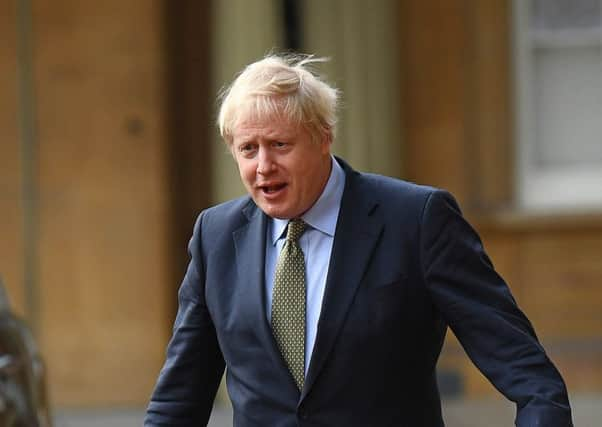Brexit’s phoney war is about to get serious – leader column


Such has been the political turmoil of the past three years, that it hardly feels like it, but what have been experiencing is, in essence, the Brexit phoney war.
The opening salvo may have been fired on a Thursday in June 2016, but the effect on the economy to date has been largely down to uncertainty and speculation about what is going to happen when the UK leaves the European Union. After MPs voted for Boris Johnson’s EU (Withdrawal Agreement) Bill yesterday, we will legally depart the bloc on 31 January, but it will only be when the transition period is over at the end of next year that we will start to feel the true effects.
Advertisement
Hide AdAdvertisement
Hide AdThe reality of Brexit, rather than the image – or mirage – will become clear and the public should find itself in a position to judge. Voters in ‘left-behind’ communities, weary of long years of austerity, will be looking for improvements to their standards of living and public services like the NHS.
Johnson’s spending plans, unusually large for a Conservative, suggest he fears the true economic consequences of Brexit and hopes to offset them by spending large amounts of taxpayers’ money. He has also tried to lift the mood with optimistic talk of a new “golden age”.
But he perhaps should fear the judgement of the public a little more than he currently appears to. His decision to make the date of the end of the transition period legally binding means trade-deal negotiations face an extremely difficult, and possibly unachievable, deadline. When Johnson talked up his willingness to leave on ‘no deal’ terms, it helped him renegotiate Theresa May’s Withdrawal Agreement with the EU – but only because the 27 other members states were willing to accommodate his demands. He was essentially issuing wild threats to bring down the house, Samson-like, and they told him to calm down, then made a reasonable and pragmatic decision.
Setting a rigid date for the transition period to end is the same strategy – the EU must march to Johnson’s allegro tune or face the dreaded no-deal. Trouble is, there aren’t many world leaders who like being pushed around in this way for long.
Rushing to ‘Get Brexit Done’ may be a political priority for Johnson, but getting a UK-EU trade deal – and a good one – is a vital national interest if the UK is to avoid catastrophe and dangerous political fallout as Leave voters realise their lives are getting worse, not better.
